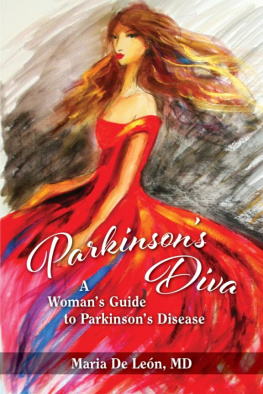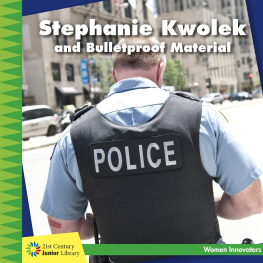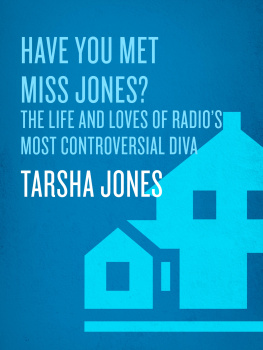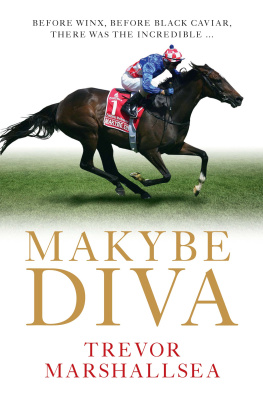also by lisa jones
Uplift the Race: The Construction of School Days (with Spike Lee)
Do the Right Thing (with Spike Lee)
Mo Better Blues (with Spike Lee)
F IRST A NCHOR B OOKS E DITION , A PRIL 1995
Copyright 1994 by Lisa Jones
All rights reserved under International and Pan-American Copyright Conventions. Published in the United States by Anchor Books, a division of Random House, Inc., New York, and simultaneously in Canada by Random House of Canada Limited, Toronto. Originally published in hardcover in the United States by Doubleday in 1994. The Anchor Books edition is published by arrangement with Doubleday, a division of Random House, Inc.
Anchor Books and colophon are registered trademarks of Random House, Inc.
The majority of the pieces herein originally appeared in The Village Voice. Is Biracial Enough? She Came with the Rodeo, Looking for Mariah, and The Hair Trade appear here for the first time.
We gratefully acknowledge permission from the following:
From the book Three Pieces by Ntozake Shange. Copyright 1981 by Ntozake Shange. Reprinted with permission from St. Martins Press, Inc., New York, NY.
From the poem Zoom, which appeared in All the Renegade Ghosts Rise by Thulani Davis. Reprinted by permission of the author.
From The Venus Hottentot by Elizabeth Alexander, the University Press of Virginia, 1990.
Jones, Lisa.
Bulletproof diva: tales of race, sex, and hair / Lisa Jones.
p. cm.
1. Afro-American womenSocial life and customs. 2. Afro-AmericansRace identity. 3. HairSocial aspects. I. Title.
II. Title: Bullet proof diva.
[PS3560.05144B85 1995]
814.54dc20 94-40307
eISBN: 978-0-307-77381-4
www.anchorbooks.com
v3.1
for the ladies
Hettie Jones,
Kellie Jones, Cora Coleman, and the gentlewomen Rice,
and in spirit,
Kimako Baraka
and
Anna Lois Russ Jones
contents
one
how i invented multiculturalism
two
bring the heroines
three
the blackest market
four
genitalia and the paycheck
five
the hair trade
acknowledgments
Most of the bits and pieces collected here come from a column I began in 1990 at the Village Voice. Skin Trade (which won out over Hot Comb, Booty & Soul, Reckless Eyeballing, and Mules & Men) was given a loose mandate: a column on the politics of style. I thank Donald Suggs for suggesting such a beat in the first place, and many others at the Voice for their support: editor-in-chief Jonathan Larsen, managing editor Sarah Jewler, and editors Mary Jo Neuberger, Joe Levy, Vince Aletti, and Amy Virshup, though most particularly Thulani Davis and Doug Simmons. My gratitude to columnist-in-crime Leslie Savan for nearly a decade of lipstick tips, and to my research assistant, Mia Mask, and Omoronke Idowu, my intern. Arts editor Lisa Kennedy, prime editrix of Skin Trade, gets all the thanks in the world. To my colleague Greg Tate, the same.
Shouts to the ancestors (literary and otherwise) and Malaika Adero, the Baraka family, the late Sylvia Ardyn Boone, C & C Computer Tyme, Cesar Cacho Jr., William Calhoun, Gordon Chambers, Nicholas Charles, Faith Childs, Barron Claiborne, Uncle Darryl, Michaela Angela Davis, C. Daniel Dawson, Peyton Beaumont Farley, Uncle Flat Top, the Glamorous Grandmas of Newark, Cheryll Greene, Kevin Griffith, bell hooks, Sherrilyn Ifil, Jon Jon, Mr. Coyt L. Jones and the Archie family, Stephanie and Suzanne Jones, Katrinia Karkazis, Peter Lau, the late Wyn Loving, the Loving-Cortes family, Slick Mahoney, Manhattan Theatre Club, Carolyn McClair Public Relations, the late Eduardo Mejia, the New York Joneses, Percidia Alice Norris, One Way Productions, Susan Osorio, the Playwrights Center, Perez and Associates, Gladys Perez, Evette Porter, Rene Raymond, Rodeo Caldonia, Alva Rogers, Uncle G. L. Russ, Coreen Simpson, Linda Villarosa, and William Byrd Wilkins.
Big thanks to the Doubleday tribe and to my editor David Gernert and his assistant Amy Williams. Also to the folks at Lowenstein Associates and to my agent, Ms. Barbara Lowenstein herself.
In her usual way, my lawyer and best friend Mara Perz saw this book coming long before I did. Please note, all the hair issues discussed within are hers. I myself have none.
introduction
This is a book of tales.
It may be the ravings of a madwoman who loved having her hands in other peoples hair, and who should have gone to beauty culture school and owned a wig shop like her great-aunt, or moonlighted as a barber like her grandfather, but by happenstance became a writer.
Or its a catalog of American obsessions in the ninetiesrace, sex, and hair, and the marketing and consumption of race, sex, and hairthat includes close encounters with brown plastic Barbie dolls, corporate boys, polygamists, hair traders, biracial entertainers, skeezers, supermamas, and cowgirls.
Or, more likely, its a continuous reenactment of my defining moment as experienced in a movie theater in London, England, during a Saturday matinee of Imitation of Life, the 1934 version. The year is 1983 and I have just turned twenty-two. I sit in the back of the dark theater thrilled because I am about to see, for the first time, a big-screen version of myself and her name will be Peola. But as the film progresses, I notice that this Peola isnt me at all, shes a remake of Frankenmulatta, that character from The Octoroon Concubine of Frankenstein, one of Mary Shelleys lost sequels.
These are funeral rites for the Tragic Mulatto.
Warning: This may also include shameless acts of soapbox politicking toward the cause of politicizing multiracial identity in the nineties. Say that again two more times fast.
This is a passing novel. Guess whos passing? You.
Certainly this is a search for heroines.
Heres a quiz: Why did African-American girls who came of age in the seventies convince themselves they had to be the perfect composite of Angela Davis and Diahann Carroll as Julia? You will be graded.
Perhaps I should tell you this is a sorrow song for my aunt Kimako who was knifed to death by a stranger in her Manhattan high rise because her doorman assumed that any man who was black like her and requested entry was automatically a friend.
This is a cover of Upscale magazine showing Janet Jackson, her skin lightened to the tone of Marilyn Monroes.
Herein is an extended nappy-hair conspiracy theory as proven by remarks made in U.S. News & World Report concerning Lani Guinier, the law professor whose nomination as assistant attorney general for civil rights was withdrawn by President Clinton in 1993: Strange name, strange hair, strange writingshes history (emphasis mine).
A fact, as documented by the television series Eyes on the Prize, II, the fifth episode, Aint Gonna Shuffle No More (19641972): The black consciousness movement at Howard University began in October 1966 when Robin Gregory became the first homecoming queen to sport an Afro. The historian Paula Giddings, interviewed in the documentary, offers this account of the homecoming coronation: The curtains opened the lights began to come up at the same time. Well, before you saw Robin, you saw the silhouette of her Afro. The audience exploded. It was a wonderful moment. People started jumping up and screaming. Some were raising their fists. Then spontaneously a chant began Ngawa Black Power! Ngawa Black Power! a chain was created and people started to march to the rhythm of Ngawa Black Power! [they marched] all the way around the auditorium and out the door and into the streets of Washington, D.C., past the campus, still chanting Ngawa Black Power! and that was really the launching of the movement. The following school year students occupied an administration building to demand that Howard adapt a curriculum that incorporated, as it had not done before, black culture and history.













